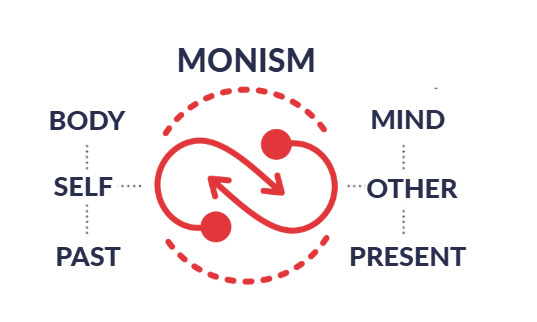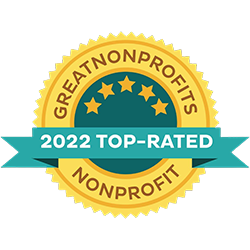
Sep 2, 2025
One Whole: How Monism Can Guide Veterans Through Transition
Written by JC Glick, COMMIT Chief Executive Officer.
When veterans transition, the struggle often feels like fragmentation. You were once part of a tight-knit unit, with a clear role, purpose, and tribe. Then suddenly, it feels as though those parts have been pulled apart: the warrior self, the family self, the civilian self, the professional self. Many ask, “Who am I now?”
This is where philosophy can be more than abstract thought. One framework I recently learned about - monism - really resonated with me and offers a surprisingly powerful way to think about transition, identity, and belonging. And before you think, “I don’t need some philosophical take - I need answers,” make no mistake - this is what philosophy was built for - to help us think about ourselves and the world around us.
What Is Monism?
Monism is the philosophical view that everything is fundamentally interconnected, part of one unified reality. Instead of seeing life as a collection of separate pieces - body vs. mind, self vs. other, past vs. present - monism holds that these are all expressions of one whole.
This differs from dualism, where reality is divided into two opposing forces (such as body and soul, or material and spiritual), and is the basis for a binary world where nuance is often overlooked. It also contrasts with more fragmented views that treat identity, purpose, and community as separate boxes to check. Monism says: it’s all connected, and the divisions we draw are often illusions that we create to make life make more sense. However, when you really think about it, isn't it easier to manage one thing than three separate things?
Identity: Integration, Not Loss
Veterans often describe leaving the military as “losing who I was.” The uniform and role seem inseparable from identity. But monism reminds us that identity isn’t something you discard and replace. It is continuous.
The warrior, the spouse, the partner, the parent, the professional, the friend - these are not competing selves, but integrated expressions of one whole self. Transition, then, is less about replacing one identity with another and more about transforming and integrating all of them into a larger, evolving story.
Purpose: The Mission Never Ends
In service, purpose is clear. Outside of service, it can feel like the mission is gone. But from a monistic perspective, purpose is never limited to any singular arena. It’s not contained within the military - it flows into the whole of life. Service does not end when the uniform comes off.
Your purpose in uniform and your purpose as a citizen are not two separate things. They are chapters in the same narrative. The mission continues, but the theater of service changes - from battlefields to boardrooms, classrooms, communities, and families.
Community: From Tribe to Humanity
The loss of tribe is one of the hardest parts of transition. In the military, community is built into the fabric of life. In the civilian world, it must be rebuilt.
Monism offers comfort here, too: community is not something left behind, but something always available. Every new relationship, every workplace team, every neighborhood connection belongs to the same web of humanity. Your tribe is not gone - it has expanded.
Transformation Through Wholeness
Monism reframes transition. It isn’t a clean break between “who I was” and “who I am.” It’s an unfolding, a transformation within continuity. You are still you. The past is still part of the present. And “who you want to be”,your future is part of the same whole.
So, when veterans struggle with identity, purpose, or community, monism reminds us: you are not fragmented, you are whole. Transition is not about losing connection - it’s about discovering how deeply connected you’ve always been.
A Call to Action
If you are a veteran, or a spouse navigating transition, don’t focus on what you think you’ve lost. Focus on integration. Ask yourself:
- How does my warrior self inform who I am today?
- How does my purpose evolve as part of a larger whole?
- How can I see my community not as lost, but as expanding?
Because when you embrace wholeness, you stop seeing transition as the end of something - and start seeing it as the becoming of something greater.
 Back to all blogs
Back to all blogs




